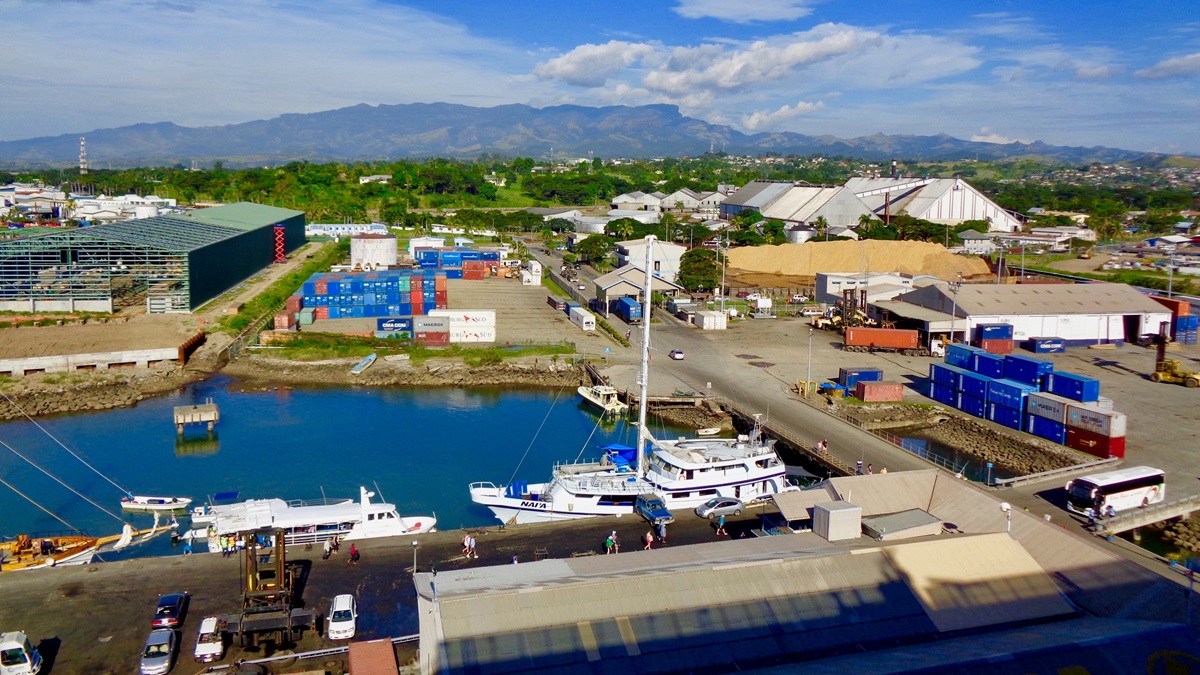Supported by UN Trade and Development and partners, countries in the disaster-prone Pacific region are exploring ways to improve their emergency logistics response to future crises.
© Shutterstock | Lautoka, a vibrant logistical hub nestled on the western coast of Fiji's largest island, Viti Levu.
Representatives from various government agencies across the Pacific region convene on 3 October in Nadi, Fiji, to explore the potential of the Automated System for Relief Emergency Consignments (ASYREC) for coordinating and expediting international humanitarian relief efforts during crises.
The week-long workshop involves over 45 representatives from ministries of trade, customs, national disaster management offices, national trade facilitation committees and private sector representatives from 14 Pacific nations.
ASYREC, developed by UN Trade and Development (UNCTAD) and the UN Office for the Coordination of Humanitarian Affairs, is a comprehensive digital system designed to facilitate the efficient coordination and management of international humanitarian assistance.
Emergency preparedness: A question of when, rather than if
Dirk Wagener, United Nations Resident Coordinator in Fiji, highlights the critical importance of implementing such a system throughout the Pacific region, where nations face increasing vulnerability to the impacts of climate change and natural disasters.
Mr Wagener says that the workshop was invaluable, noting that it is important to “stay on top of our emergency response skills and keep them fresh and sharp for if and when we will need them.”
He adds “It is a sad fact that living in the Pacific region, this is more likely to be a ‘when’ rather than an ‘if’,” underscoring the urgent need for preparedness and a coordinated approach to ensuring the prompt delivery of humanitarian assistance in life-threatening emergencies.
How ASYREC can bolster emergency response
The ASYREC system provides customs with accurate data regarding incoming relief consignments which enables information sharing and better decision-making processing with responsible national authorities and international actors supporting emergency logistics, helping to ensure greater preparedness and a coordinated emergency response.
The workshop allows participants to engage in immersive learning to better understand how ASYREC works, including a three-day simulation exercise to witness how the system could help them in a real-life disaster.
“It is through exercises such as these that we can identify the difficult to predict issues and prepare as best as possible for humanitarian emergencies themselves,” says Mr Wagener.
Natural disasters or complex emergencies, such as the COVID-19 pandemic, often result in delays to the delivery of relief goods due to poor coordination and intricate customs procedures, adversely affecting populations in need.
ASYREC aims to expedite customs processes for humanitarian relief by integrating emergency consignment information with ASYCUDA, UN Trade and Development’s Automated System for Customs Data, now used by 15 Pacific countries to manage customs operations.
In the Pacific, Vanuatu became the first country to install ASYREC in 2023.

